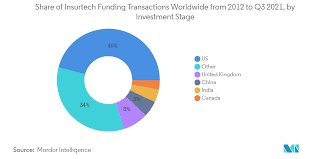The insurance industry in the United States plays a critical role in the economy, providing essential coverage and financial protection to individuals and businesses alike. Among the various sectors within the insurance landscape, the role of insurance agents is pivotal. As intermediaries between insurance companies and clients, insurance agents facilitate the purchase of policies, offer expert advice, and help clients navigate the complexities of insurance products. Understanding the industry’s dynamics, especially in terms of general liability insurance, is crucial for both professionals and consumers.
This article delves into the 2022 statistics of the US insurance agent industry, focusing on general liability insurance. We will explore key trends, market performance, and the evolving role of insurance agents in the context of general liability coverage.
Overview of the US Insurance Agent Industry
In 2022, the US insurance agent industry continued to be a vital component of the broader insurance market. Insurance agents, including those specializing in general liability insurance, contributed significantly to the industry’s overall performance. The role of these agents has evolved with technological advancements and shifting market demands, impacting how they operate and interact with clients.
Market Size and Growth
The US insurance agent industry witnessed a steady growth trajectory in 2022. According to industry reports, the market size of insurance agents and brokers was estimated to be around $400 billion. This growth can be attributed to several factors, including increasing awareness of insurance products, rising demand for personalized insurance solutions, and the expanding complexity of insurance needs.
1.2 Employment and Revenue
The insurance agent sector employed approximately 500,000 individuals across the United States in 2022. This number reflects a slight increase from previous years, indicating a growing demand for insurance professionals. Revenue generated by insurance agents also saw an upward trend, driven by a combination of new policy sales, renewals, and the increasing complexity of general liability insurance.
2. General Liability Insurance An Overview
General liability insurance (GLI) is a fundamental coverage type that protects businesses from various risks, including bodily injury, property damage, and personal injury claims. For insurance agents, understanding and effectively selling general liability insurance is crucial, given its importance in safeguarding business interests.
Importance of General Liability Insurance
General liability insurance is essential for businesses of all sizes and sectors. It provides protection against claims related to
- Bodily Injury Covering medical expenses and legal fees resulting from injuries sustained on business premises.
- Property Damage Addressing damage caused to third-party property due to business operations.
- Personal and Advertising Injury Protecting against claims of libel, slander, or other personal injuries resulting from business activities.
For insurance agents, offering comprehensive general liability coverage is vital in meeting the diverse needs of business clients and ensuring they are adequately protected.
Market Trends in General Liability Insurance
In 2022, the general liability insurance market experienced several notable trends
- Increased Premiums Due to rising litigation costs and higher claim frequencies, general liability insurance premiums saw an increase. This trend was particularly noticeable in high-risk industries such as construction and manufacturing.
- Customization of Policies Businesses sought more tailored insurance solutions to address specific risks and operational nuances. Insurance agents played a key role in providing customized general liability policies to meet these needs.
- Integration with Other Coverages There was a growing trend towards bundling general liability insurance with other types of coverage, such as professional liability and property insurance, to offer comprehensive protection.
Role of Insurance Agents in General Liability Insurance
Insurance agents are integral to the distribution and management of general liability insurance. Their role involves more than just selling policies; they act as advisors, risk assessors, and customer service representatives.
Sales and Distribution
Insurance agents are responsible for selling general liability insurance policies to businesses. They work closely with clients to understand their needs, assess potential risks, and recommend appropriate coverage options. Effective sales strategies and client communication are essential in this process.
Risk Assessment and Consultation
Agents provide valuable risk assessment services, helping businesses identify potential liabilities and understand the coverage requirements. This consultation is crucial in ensuring that clients obtain adequate protection and avoid coverage gaps.
Policy Management and Support
Beyond the initial sale, insurance agents assist clients with policy management, including renewals, updates, and claims support. Their ongoing involvement helps maintain strong client relationships and ensures that policies remain relevant as business needs evolve.
Challenges Facing Insurance Agents in 2022
The insurance agent industry faced several challenges in 2022, impacting their ability to effectively manage and sell general liability insurance.
Regulatory Changes
Changes in regulations and compliance requirements affected how insurance agents operate. Staying updated with evolving regulations and ensuring compliance was a significant challenge for many agents.
Technological Disruptions
The rise of digital platforms and automation tools introduced new dynamics to the insurance industry. While technology offered opportunities for efficiency and innovation, it also posed challenges related to adapting to new systems and competing with digital-only insurance providers.
Market Competition
Increased competition from both traditional insurers and new entrants in the market added pressure on insurance agents. Differentiating services and maintaining competitive pricing were key concerns for agents seeking to capture and retain clients.
Future Outlook for the Insurance Agent Industry
Looking ahead, the insurance agent industry is expected to continue evolving in response to market trends and technological advancements.
Emphasis on Technology Integration
The integration of technology, including artificial intelligence and data analytics, is anticipated to shape the future of insurance agents. Embracing these technologies will enable agents to enhance their services, improve efficiency, and better meet client needs.
Focus on Specialization
Insurance agents may increasingly focus on specialized areas of coverage, such as niche industries or emerging risks. Specialization can help agents provide more targeted advice and differentiate themselves in a competitive market.
Adaptation to Regulatory Changes
Agents will need to remain agile and adapt to ongoing regulatory changes to ensure compliance and maintain their professional standing. Staying informed about regulatory developments and implementing necessary adjustments will be crucial.
The US insurance agent industry in 2022 demonstrated resilience and adaptability amidst a dynamic market landscape. General liability insurance remained a cornerstone of business protection, with insurance agents playing a critical role in delivering this essential coverage. Despite facing challenges related to regulation, technology, and competition, the industry’s growth trajectory and evolving practices indicate a promising future. For insurance agents, staying abreast of industry trends, embracing technological advancements, and focusing on client needs will be key to navigating the evolving insurance landscape effectively.





















